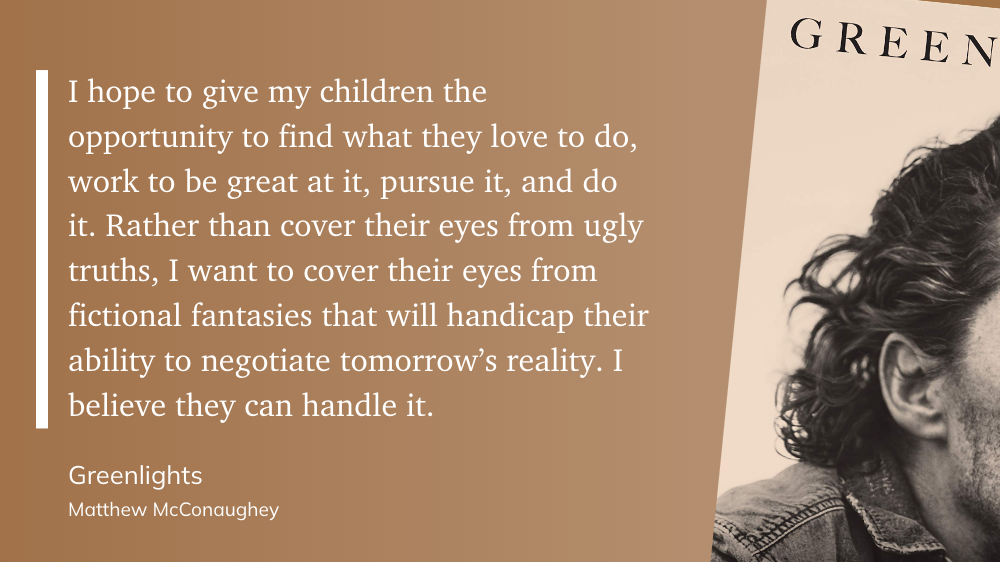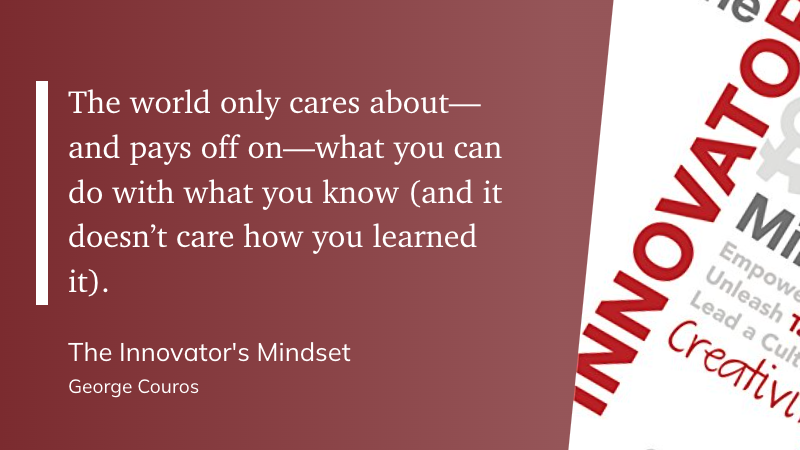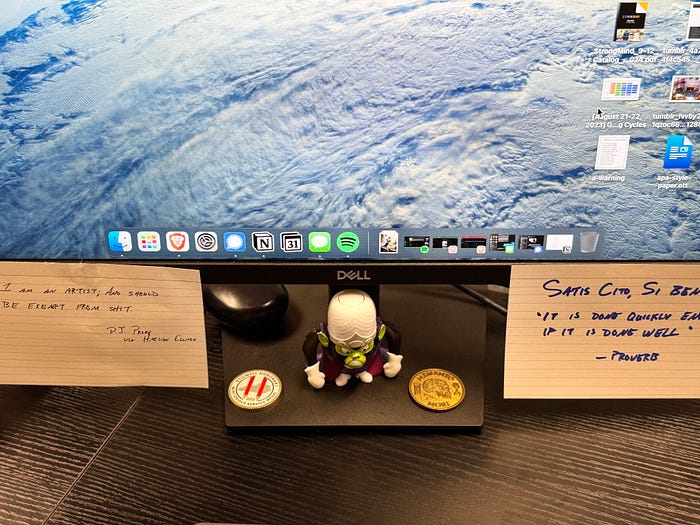
Greetings Starfighters,
Earlier this week, Austin Kleon sent out a wonderful article about the things we love and live with, especially all the little things we keep around our workspaces and homes that help keep us sane.
I started thinking about all the trinkets I keep around me and realized that I keep a metric buttload of stuff, some of it useful, some of it for inspiration, and some of it just because.
For instance, on top of my desk at home, I have a number of themed Mr. Potato Heads because they make me smile. But amid them, there is a Batman action figure from the 1989 Tim Burton film.
Of all the toys I had in my younger days, that one has been with me through move after move, relationship after relationship. Sometimes a space doesn’t really feel like mine until I have Batman standing silent guard over all.
Pictures and drawings from my daughter and wife also hang around, as do several creations from former students.
Several versions of Iron Man lay scattered about, along with more pens, pencils, and markers than should be acceptable for someone in his late 40s.
I also keep several quotes taped up around me as reminders and inspiration. They include:
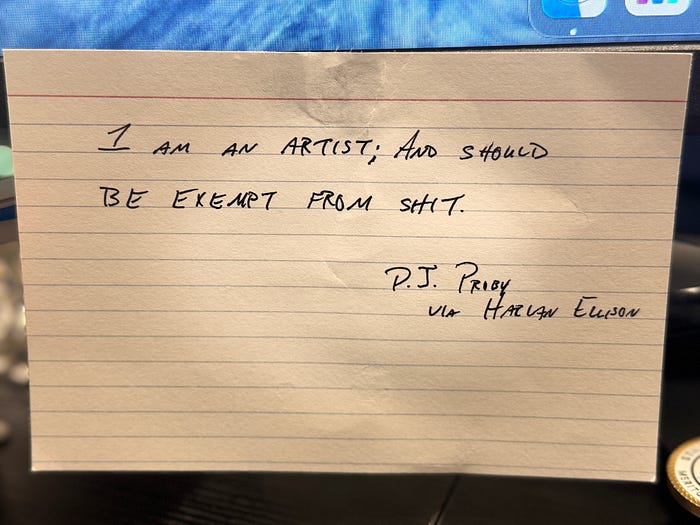
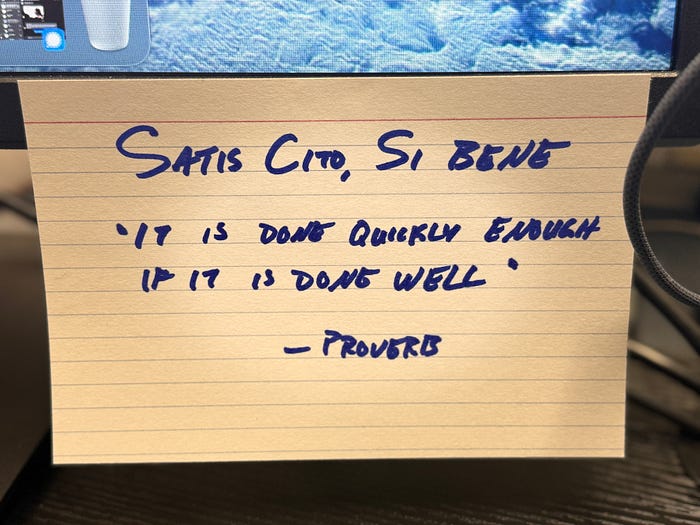
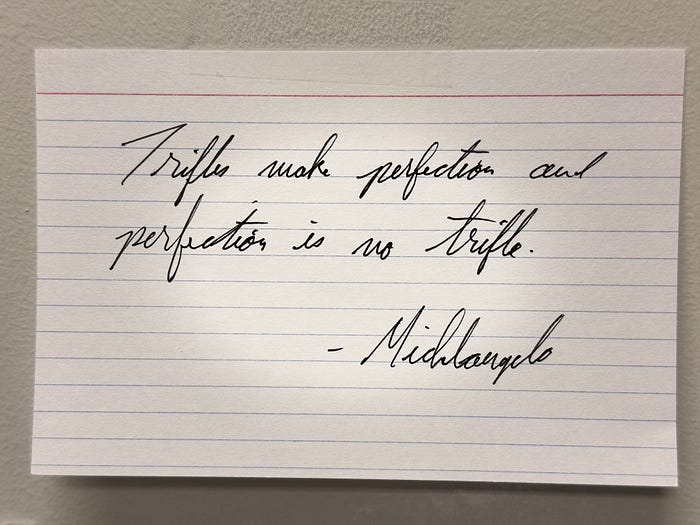
I also have a copy of this print from Ryan Holiday featuring a great Hemingway quote hanging next to my desk at home.
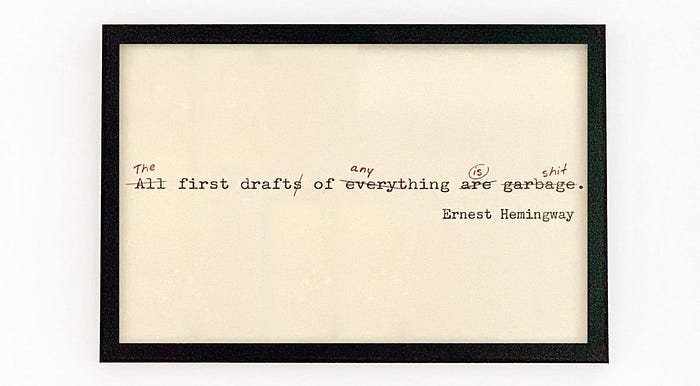
Oh, of course, there’s also my growing book collection (because I’m totally embracing the antilibrary theory).
Each item has some meaning for me, whether sentimental or silly and helps make my little areas of the world truly ‘mine.’
So, my question to you today is, “What do you keep around that makes a space truly yours?”
I’m opening up comments for this post on my Substack for everyone. Normally, only paid subscribers have access but let’s all get in on this bit of memory sharing, shall we?
Quote of the Day
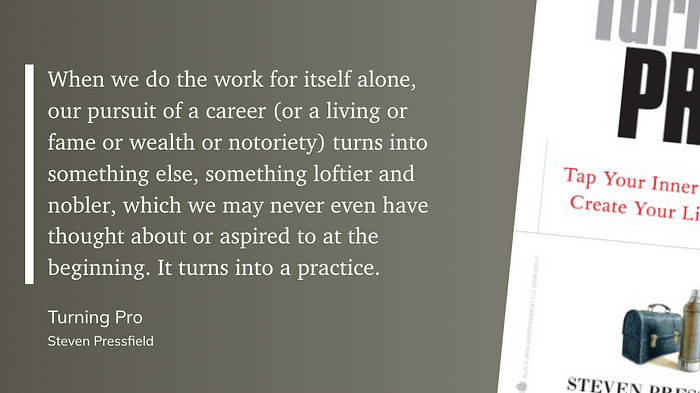
“When we do the work for itself alone, our pursuit of a career (or a living or fame or wealth or notoriety) turns into something else, something loftier and nobler, which we may never even have thought about or aspired to at the beginning. It turns into a practice.” (Steven Pressfield, Turning Pro)
Musical Interlude
Since my friend, John Nash, is in Las Vegas for the opening of Dead & Company at the Sphere, here’s a live performance of Sugaree from a few years ago.
Long Read of the Day
If you are holding a day job while you are writing your novel or poetry in the evenings after the kids have gone to sleep or the dishwasher has been unloaded or various tasks for the next morning have been completed, please do not be disheartened. Of course, writers need more space and support mechanisms of their own. This was clearly outlined by Virginia Woolf in her A Room of One’s Own. But my point is, if at this moment of your life, for whatever reason, you cannot completely dedicate your time to writing and have to do other things alongside, do not allow anyone make you feel like you are not a serious author.
We are storytellers. We are lovers of literature. We do not need labels or boxes. We are writers and that is all there is to it.
Amateur Writers vs Professional Authors
Video of the Day
If you haven’t heard, Francis Ford Coppola has a new movie he’s hoping to release soon. It looks bonkers. I hope someone picks it up and releases it because I want to see exactly how bonkers it is. I also hope Coppola is able to make some of his money back since he funded the film himself.
That’s dedication, folks.
Final Thoughts
What’s The Frequency, Kenneth?
The Eclectic Educator is a free resource for everyone passionate about education and creativity. If you enjoy the content and want to support the newsletter, consider becoming a paid subscriber. Your support helps keep the insights and inspiration coming!

